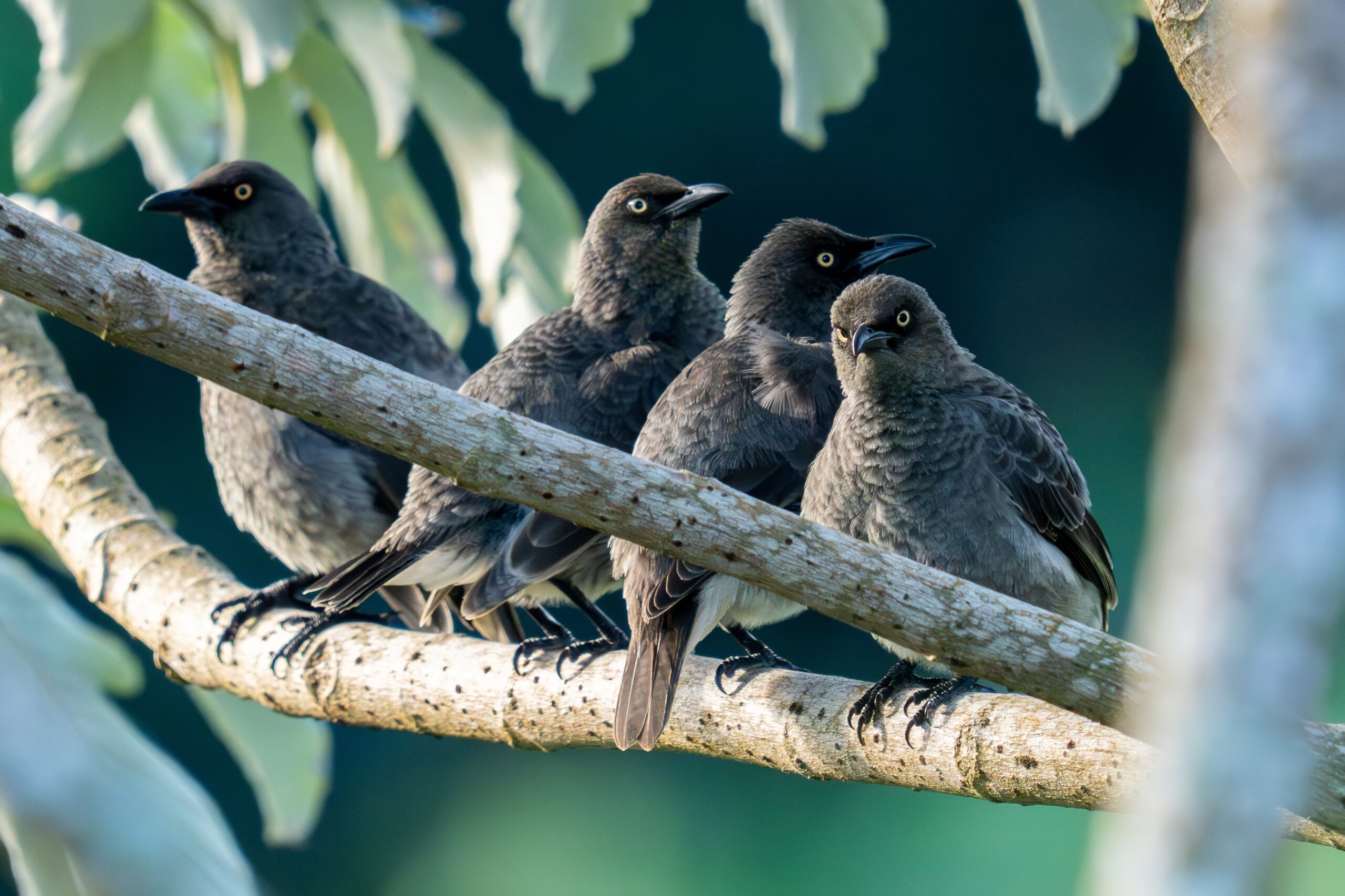Protecting the Ī’oi: Conservation Research and Volunteer Opportunities
The Ī’oi, or Rarotonga starling, has been getting some much-needed attention. Only found in the forests of Rarotonga, the Ī’oi is often hidden out of sight and doesn’t draw much attention with its smokey dark plumage blending into the dark tree canopy.
Te Ipukarea Society has launched new research efforts with an ecologist funded through Volunteer Services Abroad. The first stage of this initiative aims to unravel the Ī’oi’s breeding and nesting habits, crucial for understanding and safeguarding this species. Ī’oi are cavity nesters, building nests inside holes high in large trees. Locating these nests has historically been challenging and very few have ever been found, hindering insights into their breeding ecology, including the timing of their breeding season.
Finding Ī’oi nests and carefully observing the progression allows researchers to collect valuable information to help us understand the species and how to protect it. For example, some species like the frigatebird or Kota’a, lay only 1 egg each year and put their resources and months into raising one chick. In contrast, some species like the introduced Myna can renest multiple times in a season, laying up to 6 eggs, and can easily nest again if their nests fail due to predation, extreme weather, or other things that might go wrong. In this example, the Kota’a are much more vulnerable as a population as they cannot respond quickly to disturbances by producing more chicks and boosting the population easily. Understanding how often and how successfully Ī’oi breed will help us better understand how threatened they may be.
Artificial nest boxes have also been placed in the Takitumu Conservation Area to test whether the Ī’oi will take to these nest boxes. Nest boxes are a valuable conservation tool used around the world to provide safe nesting places for cavity-nesting birds. They can be useful in situations where forests are recovering and don’t have enough large trees with cavities. Competition between species can result in not enough natural tree cavities being available for nesting. In addition, nest boxes can protect birds from predators. If trials prove Ī’oi do use the nest boxes provided, this will make it easier to carefully monitor nests and collect new data. It’s easier to lift a lid on a box than try and peek inside a hole 6 meters up!
Te Ipukarea Society is looking for volunteers to help assist with this exciting research. Volunteers would be able to help in Ī'oi monitoring surveys that include, collecting data on their behavior during the breeding season, and searching for nests within the Takitumu Conservation Area. You don’t need prior experience with research, just a passion for nature and an interest in protecting our native species. Volunteers must be physically fit, comfortable hiking and working off-track, and have keen observation skills. The work will start in August and continue for several months. We’re looking for a commitment of at least one day a week in this period. If this sounds like you or someone you know (18+), or if you want to learn more please email te.ipukarea.society.inc@gmail.com
Your participation could be pivotal in protecting our Ī’oi population for future generations.

